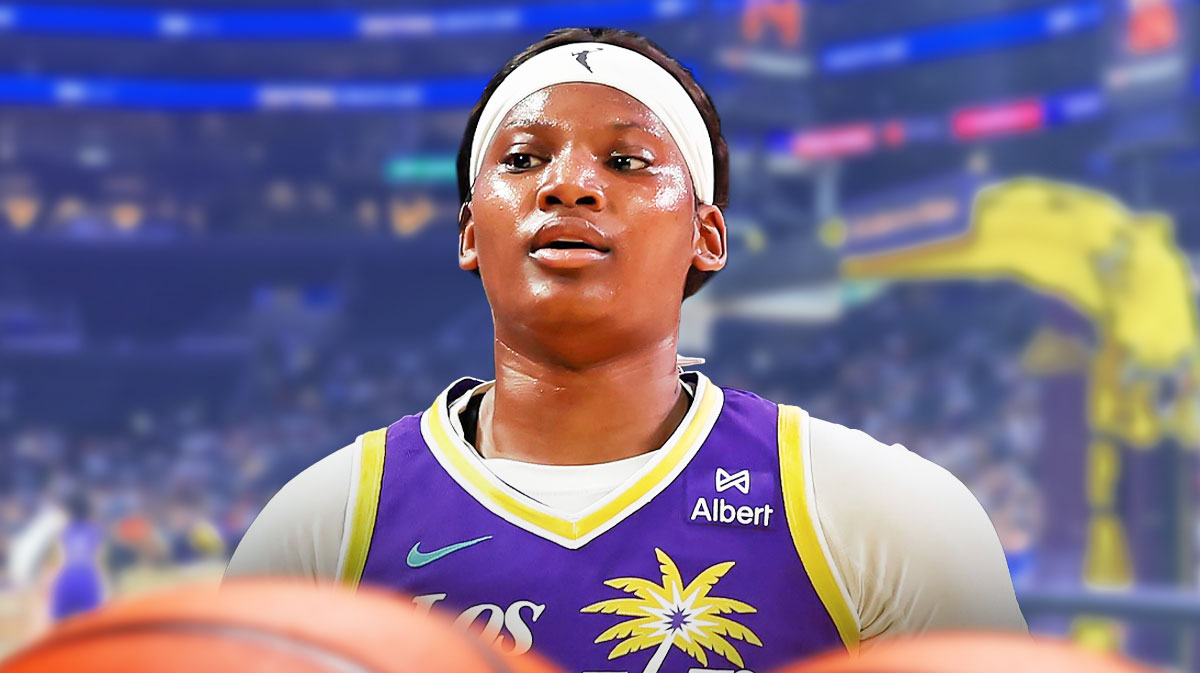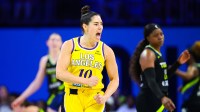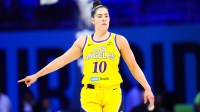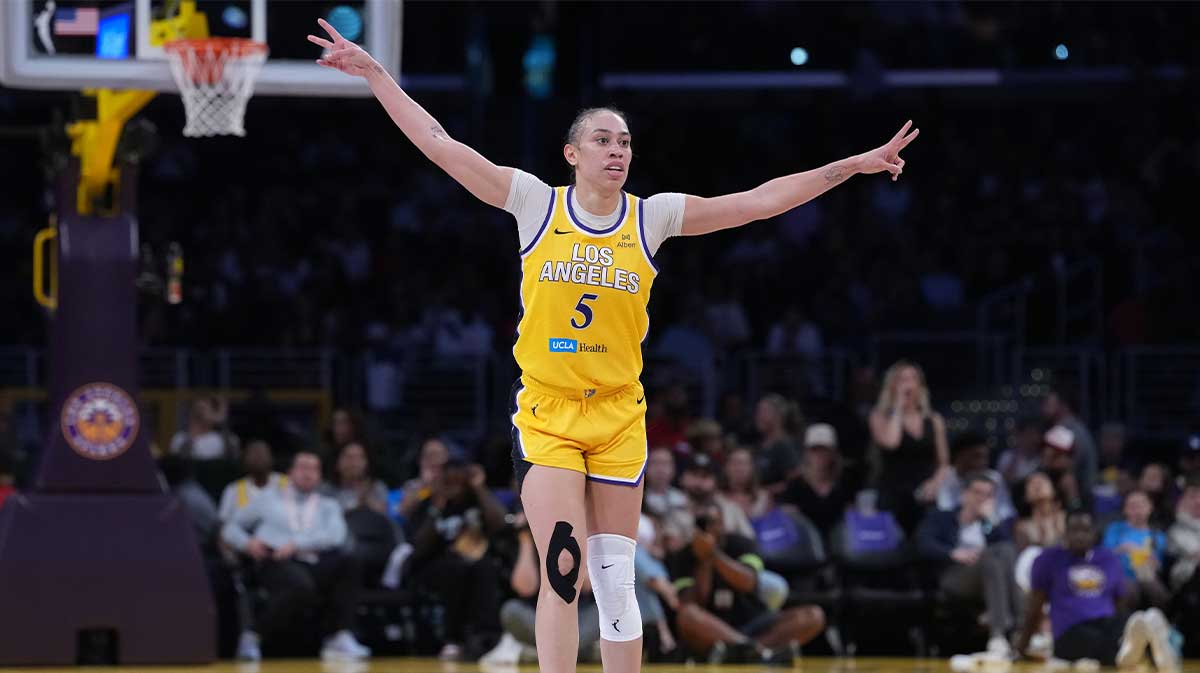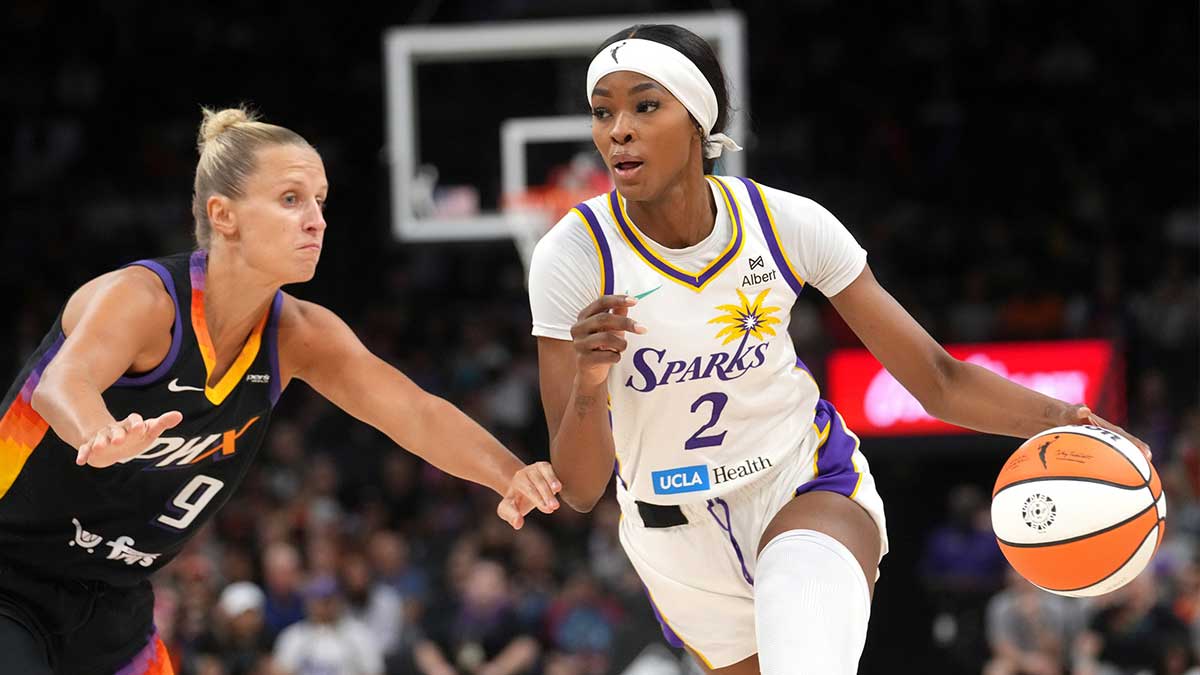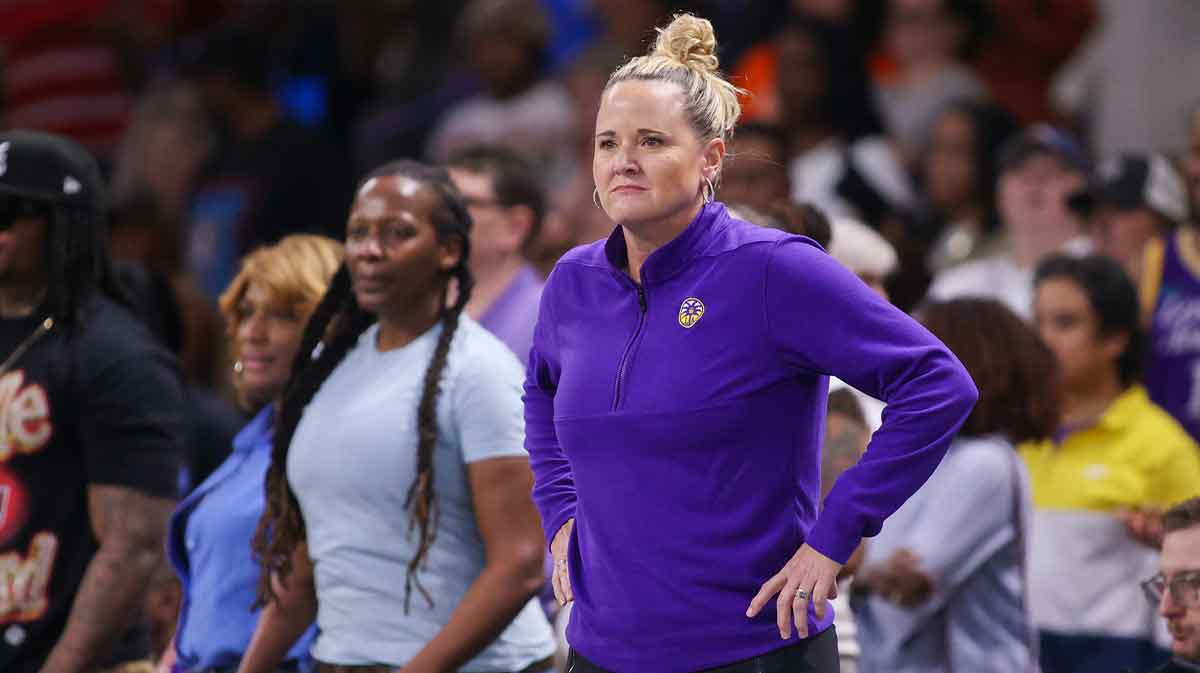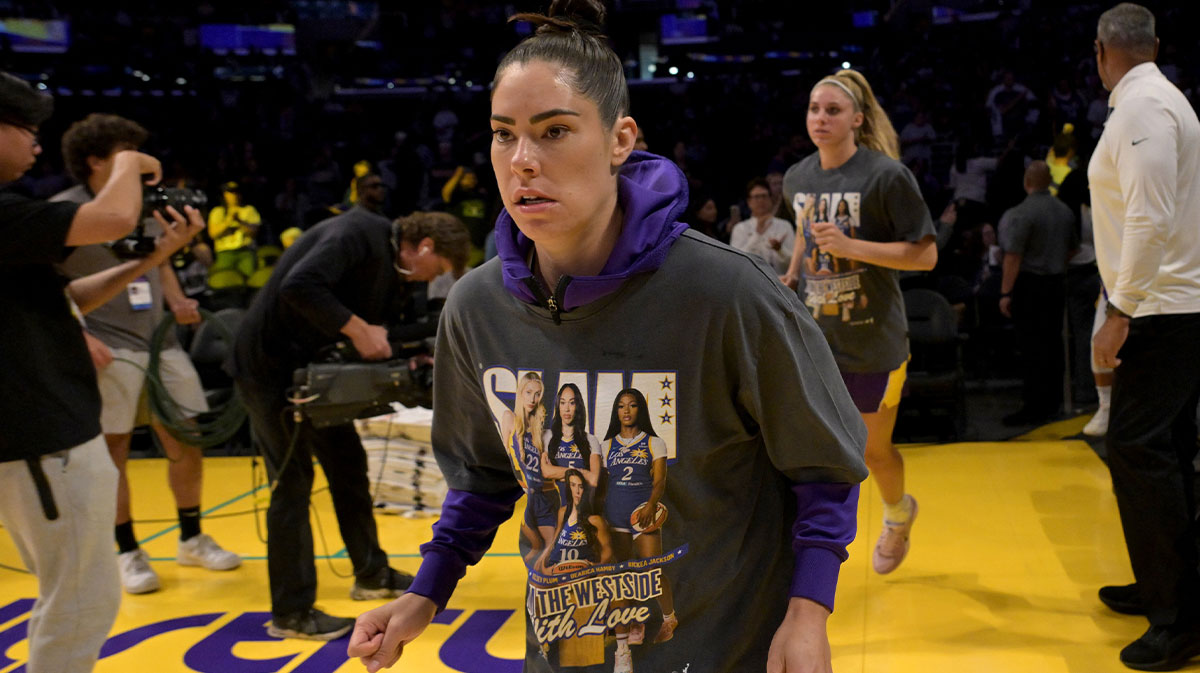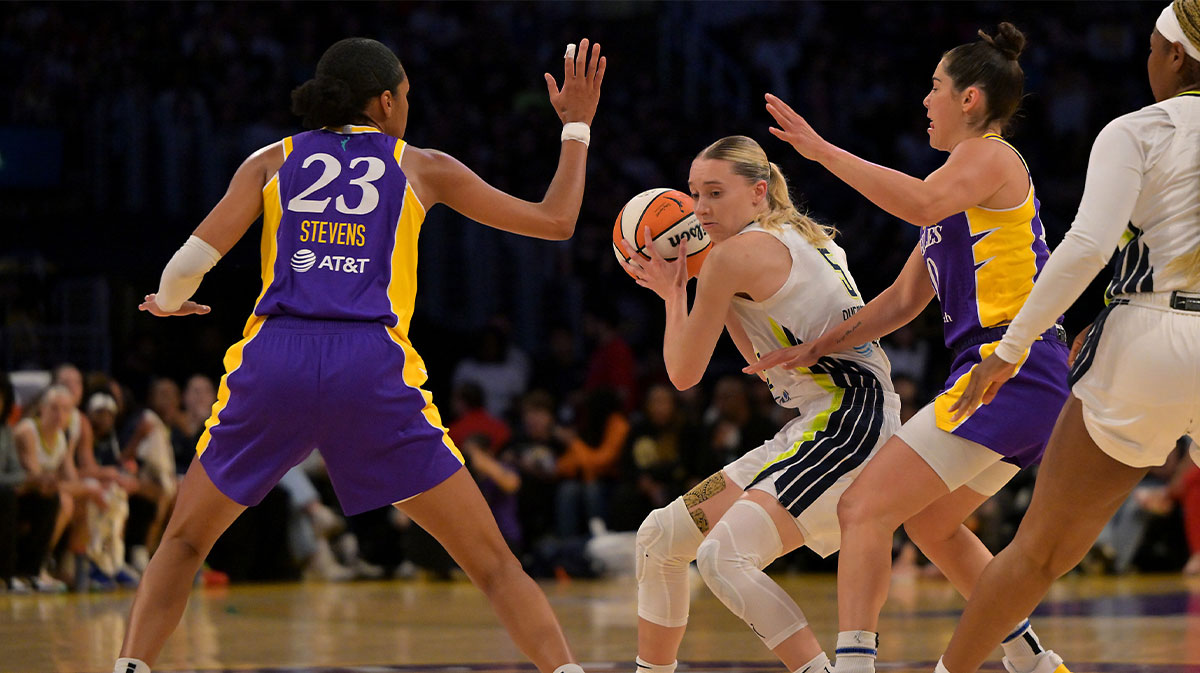The WNBA can be a major eye-opener for rookies. Many of them go from being one of, if not the top option, on their college teams, to scrapping for minutes at the end of the bench. For Los Angeles Sparks rookie Sania Feagin, it’s been a season of learning.
Sania Feagin went from being a starter as a senior on a national championship contending team, to one of the players at the end of the Sparks’ bench as a rookie. Playing time has been scarce, and most of Feagin’s rotation minutes this season came in the immediate aftermath of the Sparks’ decision to cut Mercedes Russell. With Cameron Brink still sidelined at that point, Feagin was the only reliable big behind Azurá Stevens and Dearica Hamby.
But since Brink has returned to the lineup, Feagin’s role has dwindled. During the preseason and training camp, Feagin remarked that one of the biggest adjustments she had to make was getting used to the speed of the pro game. Now with the regular season nearing an end, having a short-term memory is perhaps the biggest thing she’s taken away from her rookie season in the WNBA.
“I learned that you can’t really dwell on the past. You have to let it go and you got the next game in the next 48 hours, sometimes 24 hours, you never know,” Feagin told ClutchPoints in an exclusive interview. “So I learned that you can’t never dwell on a single game. You just got to know that it happened, it’s over with, it’s time for the next one.”
Sania Feagin’s growth during WNBA rookie season
The Sparks selected Sania Feagin with the No. 21 overall pick in the 2025 WNBA Draft. She was one of the best centers in college basketball as a senior at powerhouse South Carolina. She fit the mold of bigs and centers in today’s game in that she’s quick and mobile defensively, and able to switch onto multiple positions.
When Feagin has received playing time this year, her defense has been what’s stood out. Take for example a play against the Seattle Storm back on June 17. Feagin found herself switched onto Storm guard Erica Wheeler off a pick. She was beat off the dribble by Wheeler, but quickly recovered to meet Wheeler at the rim and block the shot.
Defense has certainly been a strength of Feagin’s going back to college, and something she projects well in at the WNBA level. But if you ask her, the biggest area of growth she’s had this season hasn’t actually been anything on the court. Instead, she’s had to navigate the mental aspect of being a pro player.
“I feel like I’ve progressed mentally, not that much physically because I feel like I have it. But mentally I feel like I just got stronger. I understand what it takes to be great,” Feagin said, “I know the work ethic and things like that.”
Sania Feagin has appeared in a total of 15 games for the Sparks this season, at a little over four minutes per game. Her season-high in minutes came on July 15 in a win against the Washington Mystics. Not surprisingly, that was also Feagin’s best game of the year numbers-wise.
She finished with a season-high eight points on 50 percent shooting from the field in 13 minutes of play. Perhaps her best game defensively was the game against the Storm when she tallied three blocked shots.
But there is one skill that Feagin has shown this year that makes her a potentially valuable WNBA player at the center position. She is able to see the court and make the right reads. She can find the open teammate and she can make passes on the move in a split second with the defense closing in on her. It’s a skill that she was taught when she was younger, and she’s carried it with her throughout her basketball career.
“When I was younger I was always pass-first before I was taught to score. When I see the open man, when I see one of my teammates open, I’m giving it up to them. If you’re wide-open, I’m giving you the ball,” Feagin said. “Especially if I’m rolling, I understand I’m right there next to the basket, but you’re wide-open. So it’s giving up a good shot of a greater shot. I think I learned that from my dad honestly. We used to go out there and play football and work on passing.”
During the month of August, Feagin played in only one of the Sparks’ 12 games. Contrast that to the six games she saw action out of the team’s nine games in July. She’s surpassed double digits in minutes played only twice out of 15 games this year. Out of the 39 games Feagin played in during her final season at South Carolina, she only registered single digit minutes in two games.
The uncertainty and fluctuating role is common for WNBA rookies. One of the most important things rookies can learn is patience. It’s a lot of waiting, a lot of learning while on the bench in real time. And a big chunk of that time for Feagin has been soaking up whatever she can from her coaches and teammates.
“Honestly I just ask a lot of questions and I stay engaged. I really try to figure out what’s going outside of the basketball when it comes to the plays, when it comes to what action we’re running, the defense, everything,” Feagin said. “I ask questions so no matter what, when my number is called I’m ready.”
With the final days of the regular season winding down, the Sparks are still in the playoff picture, albeit hanging by a thread with each passing day. For Feagin, her role is simple, continue to be the best teammate she can be while continuing to learn as much as she can.
“Honestly just continuing to learn, continuing being a sponge,” Feagin said. “Understanding what’s good for and what it takes for me to be great.”

